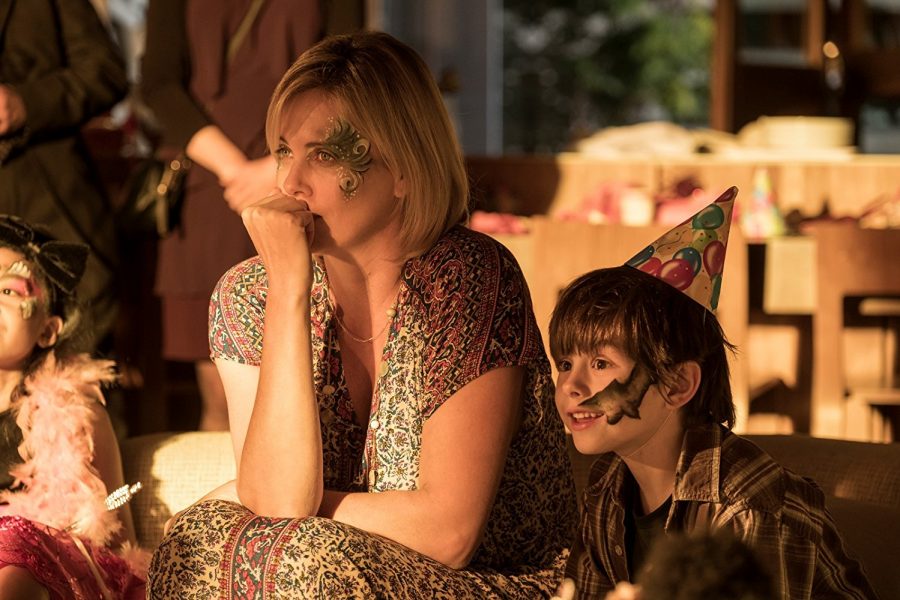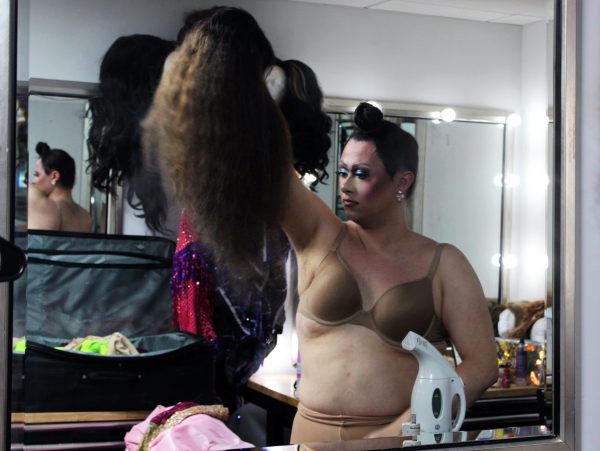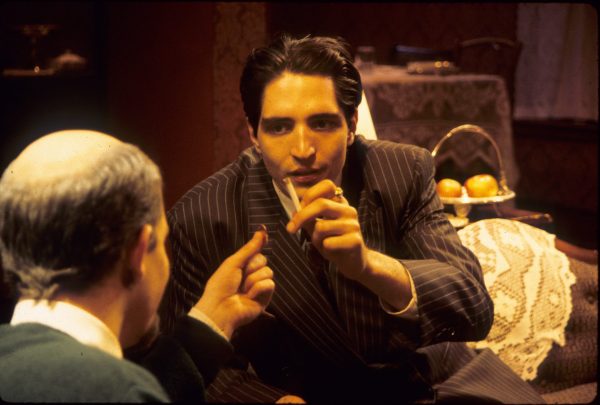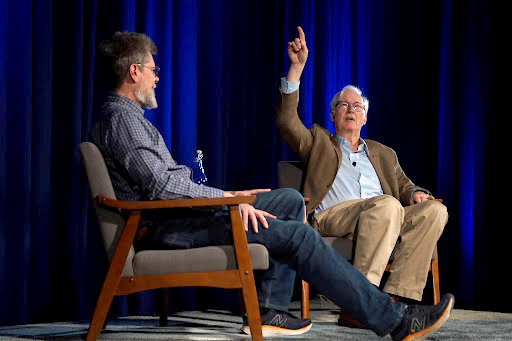Theron leads strong family dramedy ‘Tully’
As the dust clears after the $257 million-sized impact of “Avengers: Infinity War,” we can peer through to see that in fact, there are still other films out there in cinemas at the moment, and at least one of them is good. The one I’m vouching for is “Tully”, the third outing for director/writer duo Diablo Cody and Jason Reitman (their previous collaborations being the 2007 teen pregnancy comedy “Juno” and the 2011 comedy-drama “Young Adult”).
“Tully” stars Charlize Theron as Marlo, a mom who has her hands full with a young daughter, a “quirky” son (it is suggested he has some kind of disorder, but his parents don’t know what it is) and a husband who hardly has time for her between work and video games. Ten or so minutes into the film, she has a third child, and in one swift montage it all becomes too much. She takes up her brother’s offer to hire a night nanny to take off some of the workload. As Tully, the new nanny who is played by Mackenzie Davis, begins helping, Marlo’s life begins to change. It doesn’t sound like the most game-changing plot, and for the most part it isn’t. But even for a generic parenthood dramedy, it’s executed well.
To start, the film does a really solid job setting up the family dynamics and the maddening levels of stress Marlo is reaching before Tully enters the picture. If you ever need some motivation to not have kids, watch the first 15 minutes of this movie. The film opens with Marlo using “brush therapy” on her son Jonah, and we learn that she’s not even sure what it does; she’s only doing it because a doctor recommended it to calm him. Out of the gate this establishes that she is trying to do everything she can to help her family, even things beyond her own comprehension.
Then when the third child, Mia, is born, the montage is a quick yet quite effective way of showing just how far Marlo has outstretched herself. As images flash by, we see her waking up in the middle of the night to nurse Mia – only to wake up later when she starts crying – and dealing with Jonah’s struggles at school. At least a few other things go wrong during the day, and though the movie mentions Marlo has a job it doesn’t get into what happens at her work. Now repeat these steps five or six times: Boom, montage.
While I wasn’t really planning on having kids anytime soon, after watching this movie it’s going to be, like, really not soon.
Where’s the dad in all this? Great question. I liked how Ron Livingston portrays him as not a complete deadbeat, and that is how he is written as well. We see him help the kids out with school work and go to their events; when he asks Marlo how she is doing it feels like he does actually care. But it is clear he is not doing everything he could. Right after he asks those questions, Marlo typically gives a classic “I’m fine” answer, after which her husband slips on some headphones and plays video games.
Setting up the family is key in establishing the emotional weight behind the actions of the movie and understanding why Marlo acts how she does. However, it is Marlo herself and her relationship with Tully that is at the center of the film. It is no surprise that Theron puts in a wonderful performance here. She goes through so much, but you never feel she loses the love she has for her family. She is always just trying to do what’s best for them, and it really feels like it’s a challenge for her to call in Tully. But as we see their bond begin to form, the chemistry between Theron and Mackenzie Davis really shines.
Tully sits and stares at Marlo from the shadows of her bedroom while she breastfeeds Mia. Tully discusses gigolos with Marla. Tully asks about Marlo’s sex life just a handful of days after meeting her. This behavior could be strange considering the short amount of time the characters have known each other, but you get the feeling that their relationship genuinely builds that fast. Tully works well as a foil for Marlo. She’s young, carefree, engaged in several relationships and thinks she knows everything. Davis does a fantastic job pulling it all off, creating an intensely likable character that pulls the audience in as much as Tully pulls in Marlo.
All of this helps “Tully” become a strong family dramedy, but I began this review by saying it is only a generic family dramedy “for the most part.” The other “part” comes in with the ending; it made me see the whole film in a new light. My only major complaint is that it does feel like some of the character arcs wrap up a bit too nicely.
To conclude, it’s a well-done film that should meet expectations for anyone interested in it, and it might even surpass some people’s’ expectations with its ending. If you don’t feel the need to see “Infinity War” (again) and are on the lookout for something worth your while, give “Tully” your consideration.














